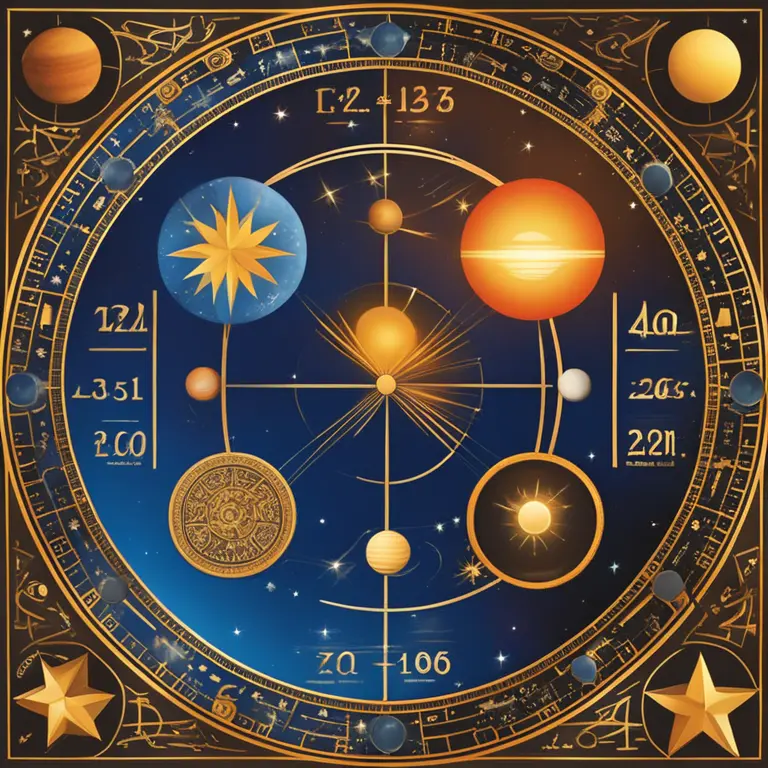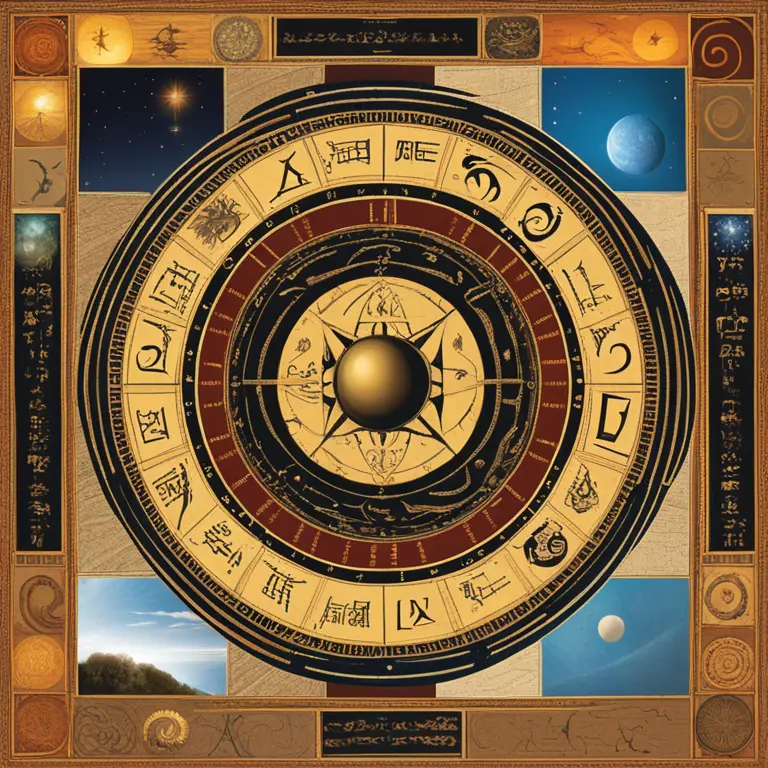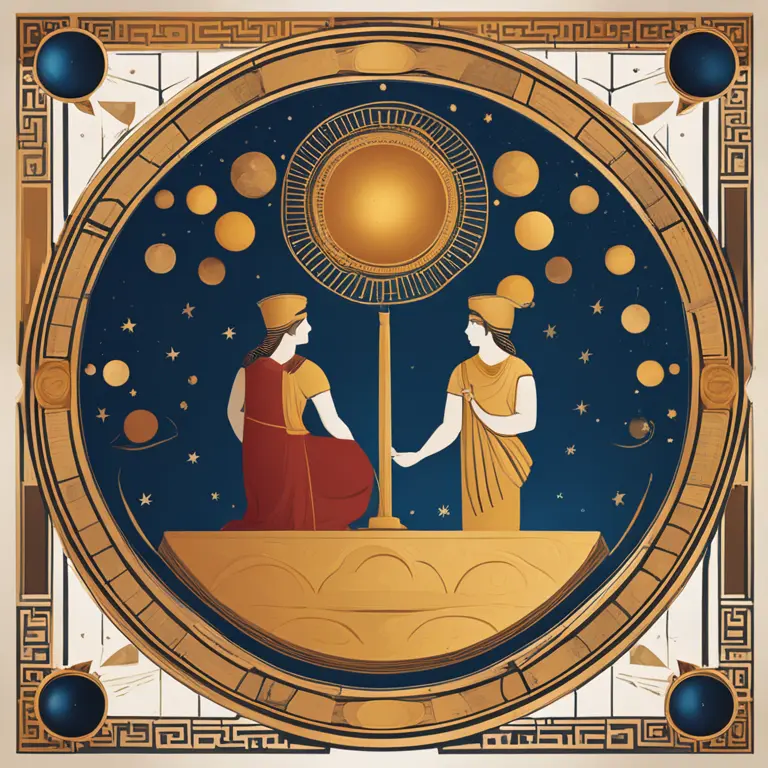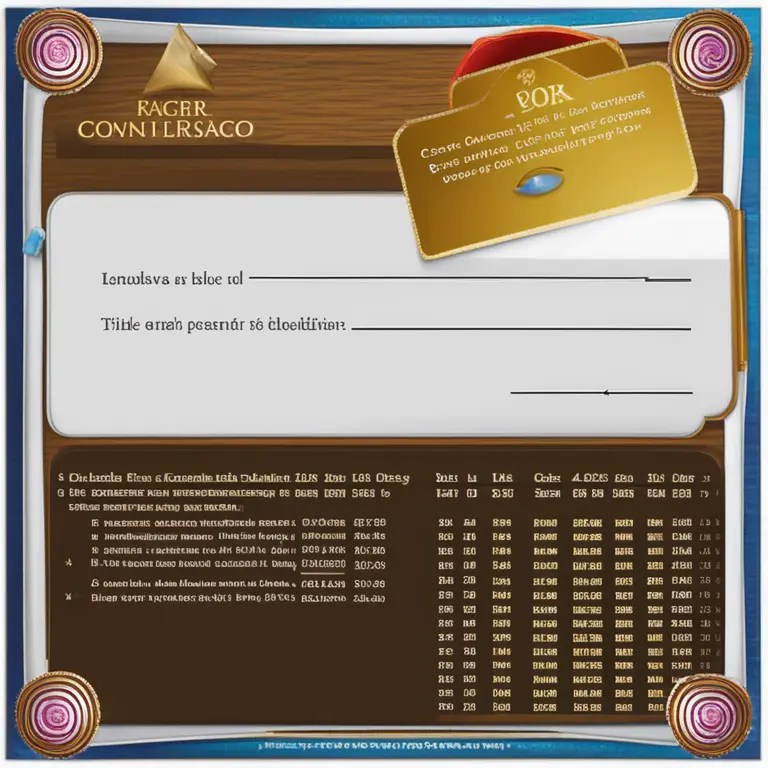
The Dawn of Astrology: Historical Beginnings
Trace the ancient origins of astrology and learn how this mystical practice began to influence human civilizations throughout history.
article by Priya Deshmukh
The Origins of Astrology
Astrology, the divinatory art of interpreting celestial patterns to predict earthly and human events, has enthralled humanity since ancient times. Its inception is woven into the fabric of history, rooted in the earliest records of human civilization. The exact time when astrology began is a matter of historical interpretation, but it's widely agreed that its practice stretches back thousands of years. Some of the earliest evidence of astrological thinking has been found on cave walls and hunter-gatherer artifacts, where lunar cycles were meticulously recorded.

Early Astrological Systems
The Sumerians, in ancient Mesopotamia around 3000 BCE, are often cited as the first to develop a rudimentary form of astrology. They observed the sky, charting the paths of the Sun, Moon, and the five planets visible to the naked eye. This celestial mapping was intertwined with their spirituality and mythology, forming an astrological framework that influenced subsequent cultures. As astrology evolved, it became an essential part of many ancient societies, from the sophisticated astrological system in Babylon to the development of the Chinese, Indian, and Mesoamerican astrological traditions.

Astrology in the Classical World
Astrology's sphere of influence reached Ancient Egypt and Greece, where it became a scholarly discipline. Ptolemy's work, the 'Tetrabiblos,' dating to the 2nd century CE, particularly exemplifies the height of astrological development in the Hellenistic period. It laid the groundwork for Western astrology as it is still known today, emphasizing the movements and relationships of celestial bodies as indicators of future events and personal characteristics.

Astrology Throughout the Ages
In the Middle Ages, astrology found patronage in Islamic courts and European royalty, becoming an institution within universities. Despite the rise of the scientific method and the decline of astrology as a science, by the 17th century, it maintained its allure. The development of psychological astrology in the 20th century, particularly with Carl Jung's work on synchronicity, rejuvenated the practice, blending it with modern psychological concepts.

Contemporary Astrological Practice
Today, astrology enjoys widespread popularity, especially online. The extent of its influence is seen in daily horoscopes, personalized natal charts, and compatibility readings that cater to a burgeoning audience eager for insight. Technologies such as sophisticated software allow for precise astronomical calculations, making natal charts and transits easy to determine. Astrology in the modern era operates at the intersection of tradition and technology, often seeking legitimacy through a blend of age-old wisdom and modern psychology.
Reflecting on Astrology's Evolution
The long journey of astrology from the dawn of civilization to its present-day resurgence shows that despite changing cultural landscapes, the stars' appeal remains unwavering. Astrology's history reflects humanity's enduring quest for meaning, a bridge between our physical world and the mysteries of the cosmos. As astrology continues to adapt to contemporary spiritual needs, its story advances, promising to keep us marveling at the stars for years to come.
Published: 1/12/2024
Modified: 1/12/2024
More predictions
Come back here soon to learn more about yourself and your future


The Truth Behind Astrology Predictions
Discover whether there's legitimacy to astrology readings and how they influence our understanding of self and the universe.


Between Astrology & Astronomy
Delve into the intriguing relationship between astrology and astronomy, the ancient and modern perspectives on celestial observation.


The Precision of Astrology Readings: Myth or Reality?
Delving into the accuracy of astrology readings, this article examines the reliability of horoscopes and astrological predictions in the modern age.